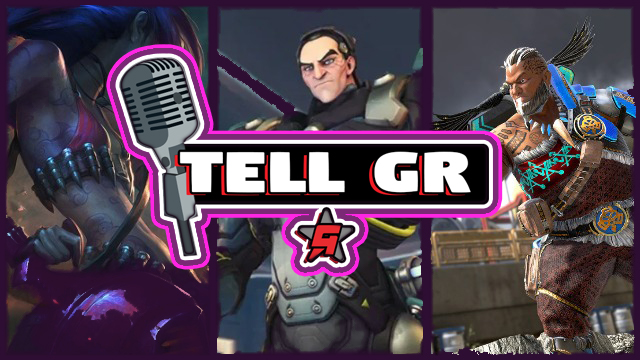Video games have a toxicity problem. Whether it’s text and voice chat, social media, or gaming subreddits, it doesn’t take long to unearth a wave of negativity affecting other players, developers, and figures surrounding the games industry.
But is there a way to kick this toxicity to the curb? Is there a solution that would help calm those waves of vitriol? We’ve shared our thoughts below, and let us know your own in the comments section!
Paul Tamburro, executive editor: “We live in a time when an angry consumer is just one tweet away from the developer of a game they dislike. With the gaming industry being more online than any other entertainment medium, it inevitably houses more toxicity. It’s a naturally competitive environment across a variety of levels, and this competitivity is all behind a veil of anonymity that makes toxic members of the community feel empowered.
As such, depressingly, I don’t think there is a “fix” for toxicity in gaming. I think moderation can and should become stricter, but it’s the community’s responsibility to become less hostile. Sadly, it’s unlikely that will happen any time soon.”
Jason Faulkner, senior editor: “Toxicity is a hard topic to approach because so much falls under those terms. More recently, Apex Legends and Ion Fury devs have come into the spotlight concerning toxicity and the communities around their games. Though they’re two sides of a coin, both were incredibly unprofessional.
For Ion Fury, the solution is simple. If you’re running a business, keep your politics and personal views to yourself. It’s not pertinent, and all it does is alienate potential fans. Whatever people say in the comfort of their own home is their business as far as I’m concerned as long as it’s not hurting anyone else. The issue here is that the Ion Fury devs went out of their way to get too chummy with a particular subset of their fanbase and made public statements that some people consider harmful. Their Discord is a public forum, and as such, they should have comported themselves as representing their product and company while engaging with fans. What they said would be considered unprofessional in any venue, and I can definitely understand why people are upset about it.
The Apex Legends incident is another searing incidence of unprofessionalism. Project lead Drew McCoy got upset when the subreddit didn’t respond positively to the news that the team would be reworking the Iron Crown event after feedback that the grind for items was too intense and that they were overpriced. He broke one of the cardinal rules of entrepreneurship: If you want to sell someone something, don’t call them names. I don’t really have much sympathy for someone living in a multi-million dollar house in California getting mad because people weren’t happy that he was trying to sell virtual skins for ridiculous amounts of money. I also don’t buy he’s that he’s absolved from responsibility since EA sets the pricing, etc. If you work for a company at the level of a project lead, you are the company, and you have to deal with the repercussions of the decisions they make. However, I can also see how getting assailed by thousands of unhappy players can put someone on edge. The problem here is that there should be an insulating barrier between the dev team and fans. That’s what PR is for. The Apex Legends subreddit was already incensed about the Iron Crown event, and sticking your head in a hornets’ nest, even if it’s to offer an apology, is asking for a faceful of hornets. There was a failure on the devs part for losing their cool and not keeping things professional, the players for being much too inflammatory towards them, and EA corporate for allowing a very predictable situation to occur.
I think toxicity is such a prevalent topic today because no one really switches off. Everyone’s private and public lives are so intertwined that they don’t have space to deflate and relax. It’s too easy to have thousands of people shouting at you all at once, and it’s also too easy to forget that each time you send a message, there’s someone on the other side that could be deeply affected by what you’re saying. That goes for everyone. No one wants to have the project lead on one of their favorite games, someone they look up to, go around calling people dicks, and no dev wants a constant torrent of criticism, threats, and vitriol. I want to think that most people, deep inside, are actually decent. I believe that if everyone started thinking about the fact that when you tweet or comment on Reddit that a real person is receiving it, not just some vague construct, then maybe people would be more empathetic to one another.”
Mack Ashworth, lead editor: “I don’t think we can ever “fix” toxicity in gaming. I feel like the power of anonymity, where everyone is hiding behind a random username, allows people to act like idiots with no worries about real-world repercussions. The solution would be to take away that anonymity, but obviously, that lack of privacy would be very dangerous. We see it with game developers and game journalists, where our real names are put out there, for all the haters to obsess over. To end this, people need to want to act better. Sadly, I don’t think that’s going to happen with gaming or anywhere else.”







